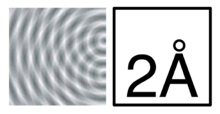500 Words, Day Eight
“Today’s prompt is: How do you get yourself in a creative mood? Write up advice on your trick, and perhaps if you blog it it will help others too!”
A large part of my "getting started" process lies in, I have to say, avoidance. Some reasons for this are possibly legitimate and some are my own damn laziness. I'm not saying this will work for everyone, but we're all avoiding things already, so it might be worth a shot.
In college (or, as we called it, "the Institute"), social status was largely based on how overwhelming your workload was. We were driven young nerds; freshman orientation actually had to remind us that a week has exactly 168 hours and some of them have to be for sleep.
There, creativity was not the issue. You were in a permanent alert mode and you had to produce. The working process was an "on fire" model: you put out whatever was on fire, and by the time you took care of that, something else would be on fire. You had to avoid distractions. When I went back to grad school a few years ago, I appreciated that return to structure. Nothing focuses the mind like a deadline.
The grown-up world sometimes offers deadlines, but that's not something you can rely on as a way to advance your productivity or competence. It came as a shock to learn that, especially in creative fields, doing only what you have to get done is not enough to make you better at what you do (or, on a more mercenary scale, advance your career).
As a result, you have to take on more self-started education and project, and self-starting your creativity takes on even more importance. (Which can overload the guilt, of course.)
So: avoidance. The process usually begins with me noticing I'm staring at something, my mind doing flips to avoid focusing or taking action on the problem or blank page. If you want a vision of my mind, imagine two bar magnets being pushed together, their north poles repelling each other.
Turns out, there's science behind the "vigilance decrement" that occurs as your attentional resources dwindle from staring at THAT DAMN SCREEN. It used to be thought that you were just not paying attention any more, that attention was a limited resource. But two researchers have found that the real problem is habituation: as you stop noticing a constant sound, you also stop noticing the stimulus of, say, a design or coding problem in front of you.
The researchers found that subjects who took breaks from tasks actually saw no drop in their performance over time, as opposed to those who kept staring. They propose that "deactivating and reactivating your goals" allows you to stay focused.
It seems to work okay for me. I've often broken knotty problems by going for a long bike ride; actually, then the issue is remembering my brilliant brainstorm.
So stop. Go stare out a window. Pedeconference, as @nilofer advocates. You know you want to be creative, and stuff will ferment in the back of your mind. Then get back to it.
And that is 500 words.
